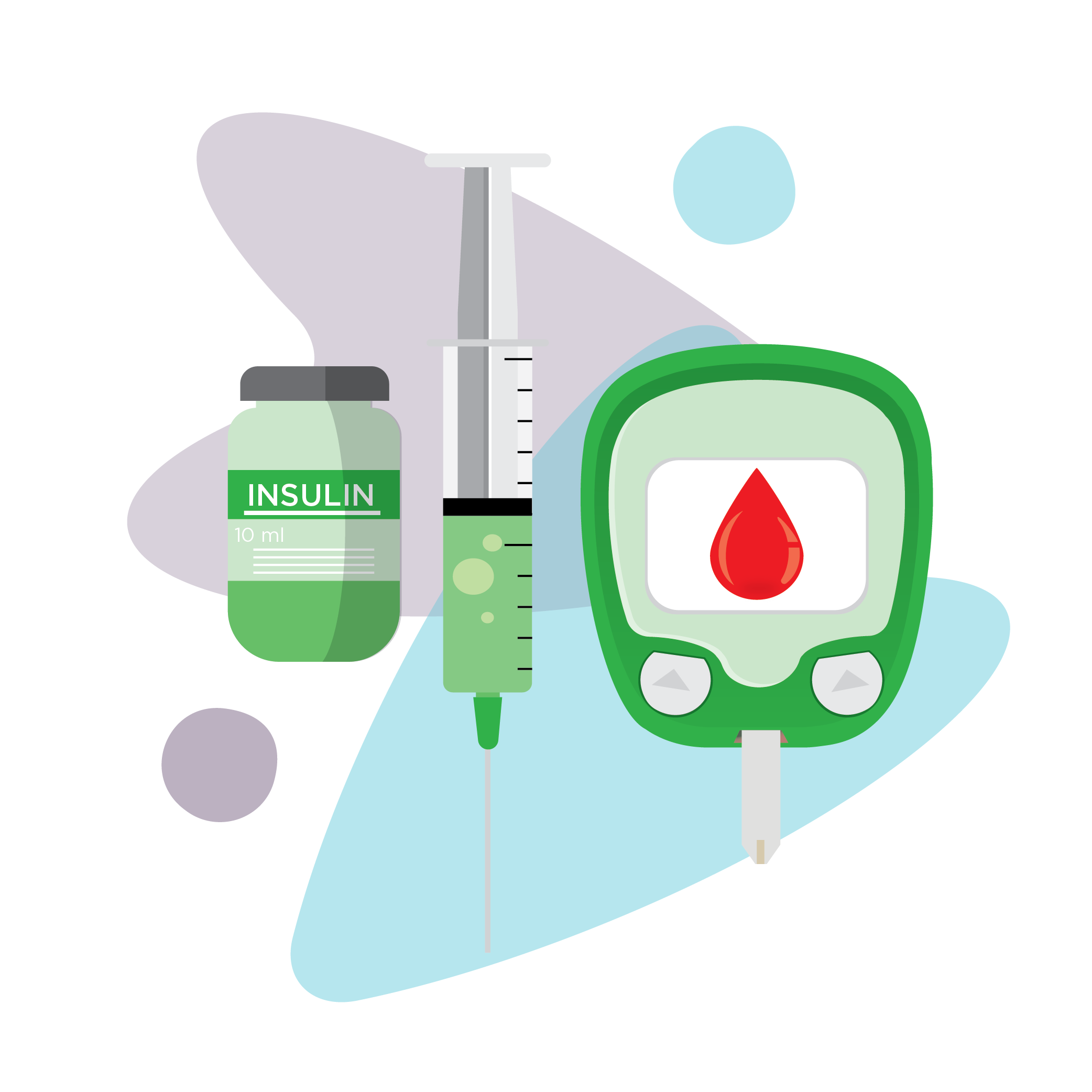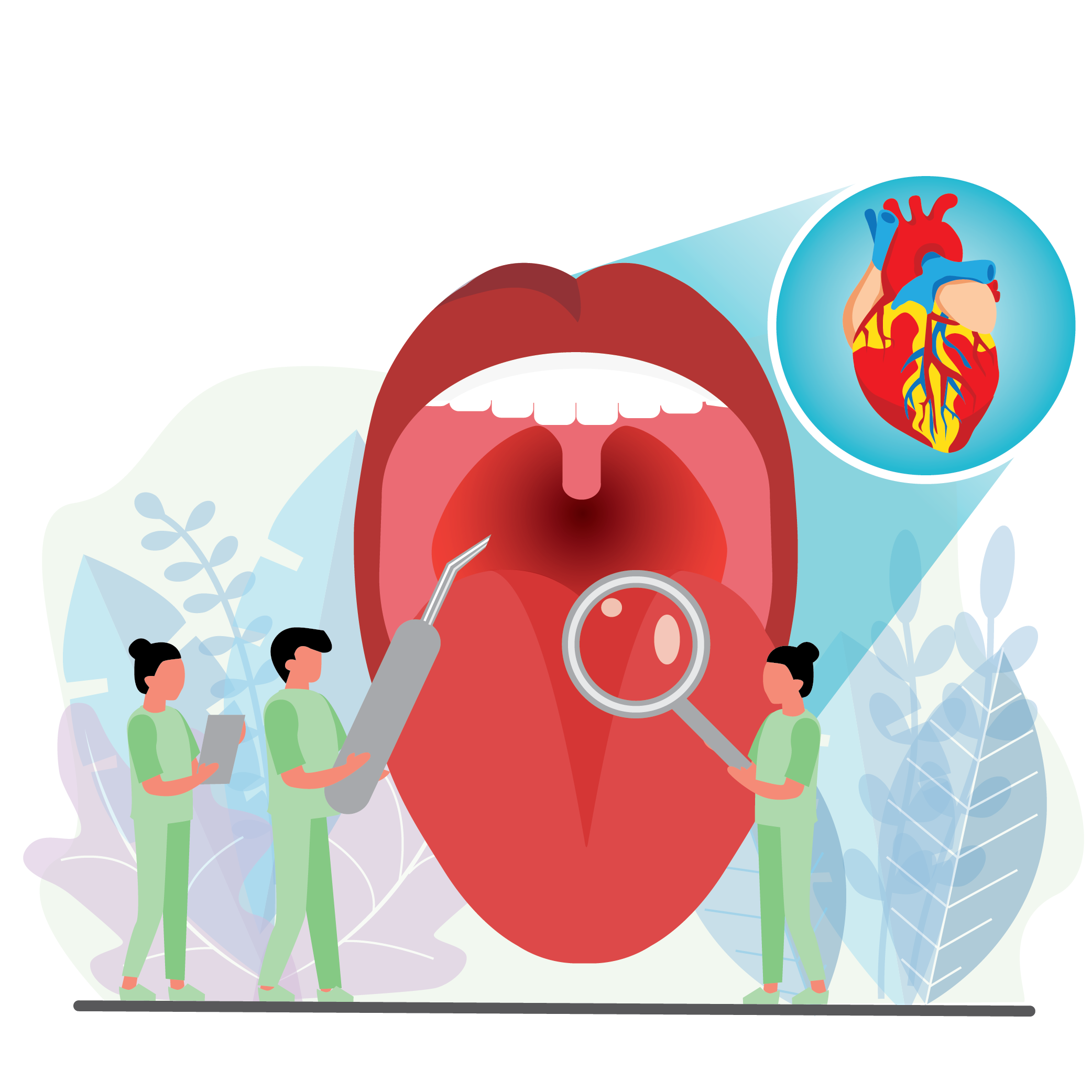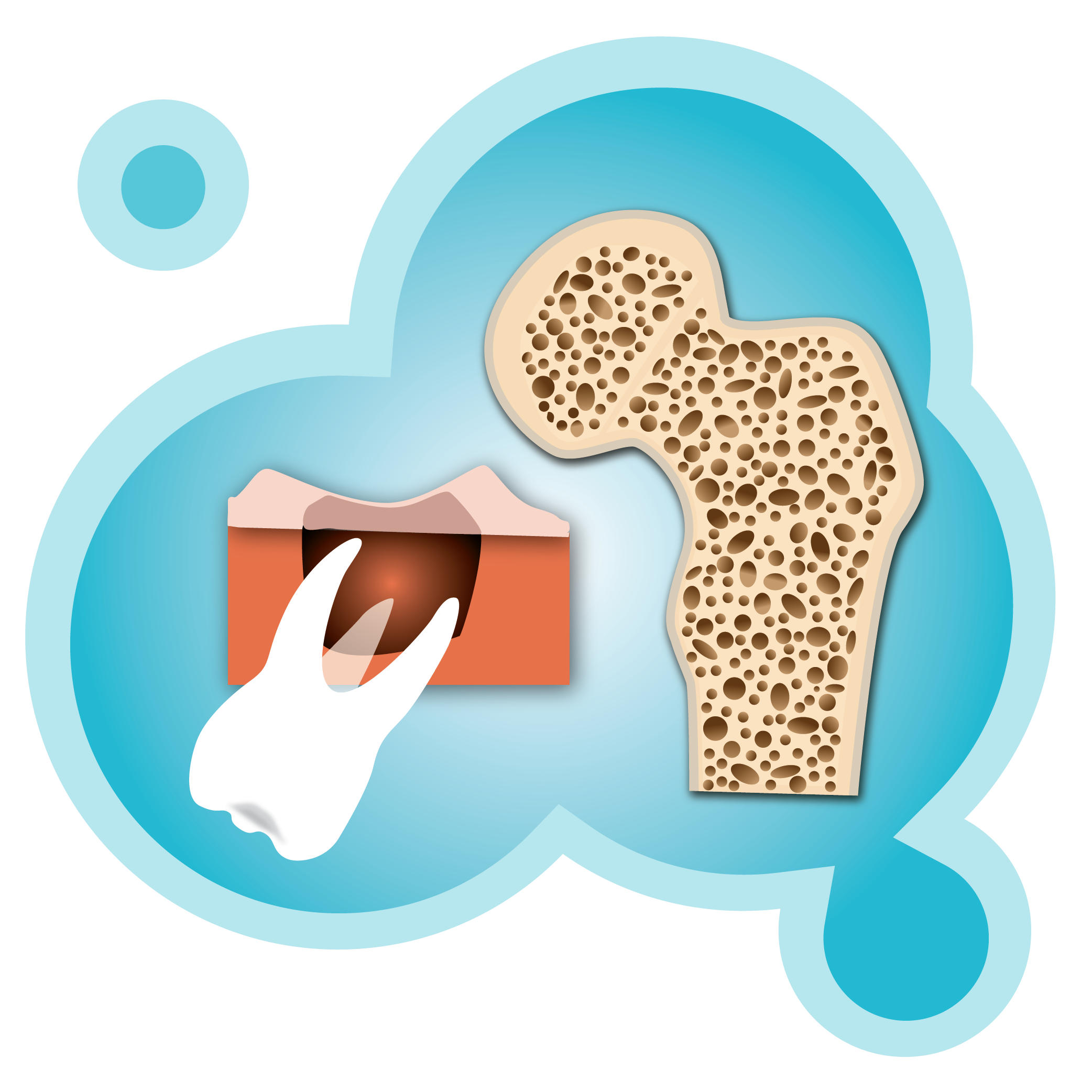
We often mention the impact of oral health on overall health, so let’s take a look at the ways signs or symptoms in the mouth can point to other greater health concerns.
Periodontal (gum) disease & diabetes
Those who have periodontal disease are at greater risk for diabetes. Your dental professional may recommend you see your primary care provider for possible diabetes screening.
Malnutrition & oral health
Lacking protein, iron and certain vitamins in your diet can cause problems with tooth development and eruption, sensitive or bleeding gums and other issues.
Damaged enamel & eating disorders
Repeated exposure to stomach acid from induced vomiting can cause damage to tooth enamel. Dental professionals can recognize enamel damage patterns and ask about self-induced vomiting or refer patients to primary care providers for eating disorder screening and treatment.

Gum swelling or bleeding & pregnancy
The increase in certain pregnancy hormones can cause increased blood flow to gum tissue resulting in swelling of gums and bleeding with brushing or flossing. This is sometimes known as pregnancy gingivitis. Continue to brush twice daily with a fluoride-containing toothpaste, floss daily and see your dental provider for routine care throughout your pregnancy and if you have concerns.
Gum disease & heart disease
Gum disease-causing bacteria in the mouth can trigger an immune system reaction, also known as inflammation, which can lead to other areas of the body experiencing vascular damage (impacting veins, arteries or blood flow) like the heart and the brain.
Pale gums & anemia
Pale gums may indicate anemia, a condition where the body does not have enough red blood cells to distribute oxygen to tissues throughout the body. Other symptoms are fatigue, dizziness, headaches and shortness of breath. Seek help from your dentist or doctor if you notice extremely pale gum tissue.

Tooth loss & osteoporosis
Osteoporosis affects bone density, mass and strength. Osteoporosis can impact the jaw bone that supports the teeth and contribute to tooth loss.
Thrush & immunosuppression
Any condition that weakens your immune system like chemotherapy for cancer treatment or advanced HIV infection can cause thrush (white, painful patches in the mouth and on the tongue). Your dentist or doctor can assess you for this problem.
Lack of dental hygiene & mental health
High stress levels, depression, anxiety or cognitive decline can all result in neglecting oral health and cause a lapse in healthy habits like toothbrushing and flossing. These can also lead to tooth grinding and more unhealthy diet choices which increase the risk of tooth decay. If you notice changes to your oral or overall health, seek the help of your dentist and doctor. Prevention and early detection can keep serious conditions from developing or worsening.
This information in this post is for general educational purposes only and does not warrant or represent any information as related to health as specifically appropriate for you. It is not intended to be medical advice or replace the relationship that you have with your health care providers. You should always seek medical advice on any diagnosis or treatment from a qualified health care provider. The information is provided “as is” without any representations or warranties, express or implied.







